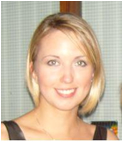Alastair Denniston - Academic Trainee
Archana Kulkarni - Flexible Trainee (LTFT)
Manjit Mehat - Junior Trainee
Hannah Sharma - Senior Trainee
Alastair Denniston
Academic Trainee
NIHR Clinical Lecturer
Honorary Specialist Registrar in Ophthalmology
West Midlands Deanery

Ophthalmology has to be one of the best jobs out there. We preserve and rescue sight, probably the most precious of the senses, and achieve this by visualising both the normal anatomy and the evolving pathology of the eye, the most beautiful organ of the body. Ophthalmic research – whether basic science, translational or clinical – enables us to better understand the workings of the eye in health and disease.
For trainees, exposure to research is really important. Even if you don’t want to be research active yourself, you need to have the skills to understand current research, to critically appraise it and to decide whether it will influence your practice. Most trainees are keen to be involved in research to some extent. Training in the West Midlands Deanery provides excellent opportunities to do this, whether you wish to be involved in clinical trials, to study cellular processes within the eye or even to interrogate the genes that underlie ocular disease. The School of Ophthalmology recognise that people will vary in the extent to which they wish to pursue the research. Accordingly support will vary from providing introductions to research and GCP training (a requisite for all trainees to permit them to assist with clinical trials), to allowing time out of programme for those trainees who wish to do a higher degree.
My own involvement in ophthalmic research started with my first post in the region in 2001. This small study on the role of statins in diabetic eye disease was conducted under the supervision of Professor Jon Gibson (University of Aston) and Professor Paul Dodson (University of Warwick) and led to a number of publications. Since then I have moved into the field of ocular immunology under the supervision of Professor Philip Murray (University of Birmingham) and with the support of the Academic Unit of Ophthalmology (comprising a number of eminent academic ophthalmologists). All academics within the School of Ophthalmology are very keen to mentor trainees so that you don’t just do the research, you learn how to do it.
Over the last few years I have been successful in gaining an MRC Clinical Research Fellow training grant enabling me to take three years out of programme to undertake a full-time PhD (‘Dendritic cell function in the eye during health and disease’) with further training in research provided by the University of Birmingham. I have had the opportunities to present this research internationally, to see it published in high impact journals and even received a number of awards for it. I am now continuing to develop my research interests within the field of uveitis, and have been successful in obtaining further funding to facilitate this.
As I come to the end of my training and look forward to starting a Consultant post in the near future, I feel very privileged to have had these opportunities. Ophthalmic research is essential and very rewarding. The opportunities to train in research in the West Midlands Deanery are excellent, and the environment is extremely supportive. Ten years on since starting my ophthalmic training here, I am now looking forward to helping others as they embark on this rewarding path, and hopefully inspiring them to enjoy ophthalmic research as much as I do.
Archana Kulkarni
Flexible Trainee MS Ophth FRCOphth
West Midlands Deanery

Early in my ophthalmology career, as a Senior House Officer, I came to the cross road of possibly pulling out of training for personal reasons. My supervising consultant at the time suggested that I could look at the option of training flexibly (now called Less Than Full Time (LTFT) training). Ever since then I have been a Flexible trainee in Ophthalmology in the West Midlands Deanery.
Contrary to belief, the process of applying to the Deanery for flexible training approval was in fact quite straight forward. An initial interview with the Associate Postgraduate Dean LTFT (flexible training), was arranged and the paperwork sorted. I was pleasantly surprised by how the West Midlands deanery and the School of Ophthalmology were very supportive towards Flexible training. At every stage in my flexible career the Head of the Postgraduate School of Ophthalmology, Programme director, Flexible Training Lead for Ophthalmology and educational supervisors have been proactive to ensure that my timetable in each post helped to fulfil my training requirements and that I was not disadvantaged as a flexible trainee.
As a flexible trainee I have found a good balance working on average 80%, however I was able to alter this if necessary. This arrangement allowed me the flexibility I needed in order to pursue Ophthalmology as a career and maintain a work life balance. I have progressed successfully as a flexible trainee having worked in all the ophthalmic sub-specialty areas to complete the core curriculum and recently completed an ASTO post which was also done as LTFT training.
Training flexibly has freed up time to pursue my research projects, audits and organising training meetings for the Midlands Ophthalmic Association. My training has been at par with the full-timers and this has only been possible because of the active support and personal involvement of the school training committee in organising appropriate posts to compliment my training.
I am impressed with the open door approach we have here at the West Midlands, where members of the Training committee are approachable and extremely helpful to full time and flexible trainees alike. I sincerely appreciate the effort and planning that has gone into organising my flexible training timetable and posts on an individual basis, ensuring that my surgical and clinical training was maximised.
I have thoroughly enjoyed my Ophthalmology training in the West Midlands which has been an invaluable experience. I will always be grateful for the support and guidance I received throughout my training and to have had the opportunity to pursue a career in ophthalmology as a flexible trainee, without which things would have been very different.
Junior Trainee
Manjit Mehat ST3 Ophthalmology
West Midlands Deanery

The first year of any specialty post can often be daunting, and this is certainly true in Ophthalmology. However this transition need not be so terrifying. I started my Ophthalmology training in the West Midlands Deanery, having previously had no formal ophthalmic experience. Three years on, with the support of an inspirational group of clinical and educational supervisor, I have managed to survive! During this process I successfully passed examinations, achieved surgical proficiency, presented research projects at both national and international level and more recently, completed an MSc in Clinical Ophthalmology.
Fundamentally the journey has continued to reinforce my passion for Ophthalmology, a unique specialty that provides both surgical and clinical challenges in the diagnosis and management of ocular disease. So what is the secret to success? I believe that this journey would not have been as productive or enjoyable, had it not had been for the continued support during my training which the West Midland Deanery and the School of Ophthalmology have been pivotal in providing.
The West Midlands region offers one of the largest ophthalmic training programmes, encompassing both larger central and more peripheral district hospitals. The first few years of Ophthalmology in the region are centered at building a firm foundation and consultant led teaching is central to delivering this commitment. These sessions also enable trainees from across the region to meet up on a regular basis, sharing experiences and advice. The provision of informative and didactic teaching is something that both the School of Ophthalmology and the Academic Department of Ophthalmology take great pride. Trainees are encouraged to take ownership through shaping the delivery of these sessions and contributing to their content.
Training within the Deanery is clearly structured and well supervised. Individual trainee needs are assessed and strategies to enhance trainee experiences are addressed at annual review. Although these are often daunting, they provide a fair and thorough platform for trainees to reflect and identify individual strengths and weakness. The School of Ophthalmology also endeavours to maintain transparency and elected trainee representatives attend School Board meetings. This provides an important platform for trainees to voice concerns.
Thanks to a dynamic group of trainees there are always lots of social events to look forward to all year round. The Eye Ball is by far the pinnacle of the social calendar and provides an excellent opportunity for trainees, consultants and nursing staff to unwind and reflect back on another year. Despite the relatively large geographic area, there is a real sense of family amongst the Ophthalmology community in the West Midlands.
In summary the West Midlands has a cultural rich population of patients that provide trainees with a multitude of learning experiences, and all in the context of a thoroughly supportive group of ophthalmic consultants.
Senior Trainee
Hannah Sharma ST6
West Midlands Deanery

I decided upon a career in ophthalmology towards the end of my undergraduate training. I was drawn to the crossover between medicine and surgery which ophthalmology offers and the desire to have a life-changing impact on patients’ quality of life through my career. Having graduated from the University of Birmingham, I already had an insight into the excellent training that the West Midlands provides and so was keen to pursue my specialist training in this deanery.
I started in the old training system as a senior house officer in ophthalmology and then made the transition over to OST2 from where I have steadily progressed up the ranks and I am now starting my OST6 post. The West Midlands School of Ophthalmology has given me a fantastic grounding in ophthalmology. I have had the opportunity to work in a wide range of sub-specialties encompassing oculoplastics, cornea, glaucoma, uveitis and inflammatory eye disease, paediatrics, medical and surgical retina and neuro-ophthalmology. Much of this experience has been obtained in tertiary referral centres such as at the Birmingham and Midland Eye Centre, around which our training centres, however I have also worked in the smaller setting of peripheral district general hospitals. The deanery is ideal for delivering this wide range of experience as it includes hospitals with such diverse population demographics and service provision and yet all within a commuting distance from the centre of the region.
As well as day-to-day experience in clinics, eye casualty and care of in-patients, I have also been able to develop my surgical, laser and clinical skills under expert supervision within a supportive environment. Our training is well structured and supervised. There is a thorough appraisal and annual review system in place and we are closely mentored by our clinical and educational supervisors at every step of our training. The School of Ophthalmology faculty within the West Midlands are approachable, open to feedback and offer guidance and support throughout.
We are given plenty of time during our timetables to pursue research, study and audit and are actively encouraged to attend training courses, conferences and meetings. I have had the opportunity to present my work at local, regional, national and international meetings including The Royal College of Ophthalmologists Annual Congress, The World Ophthalmology Congress and the American Academy of Ophthalmology.
The West Midlands also has an excellent weekly half-day ophthalmology teaching programme which, not only allows us to extend our knowledge of the specialty, but also gives us an opportunity as trainees to meet up and share experiences. We are a very sociable, unified group of trainees in the West Midlands and have a very active doctors’ mess which frequently organises sponsored lunches and evening meetings. There are lots of opportunity to join in! I have been involved with the Midlands Ophthalmic Trainees’ Association organising educational and social events and courses and also the West Midlands Christmas Eye Ball. New trainees are always welcomed into the deanery and actively encouraged to participate in every aspect of their training.
I am now looking to the future; to my final subspecialty training, and the fellowships and consultant job to come. I will always look back and be grateful for the great training and opportunities to develop my career which the West Midlands has provided.